What I Noticed Today (2 Kings 4-5)
2 Kings 4-7 represent a departure from the chronological record of the kings. They contrast the true followers of God with the pagan practices of the Israelites, and they record the work of the prophets of God beginning with Elisha over a period of many years.
2 Kings 4

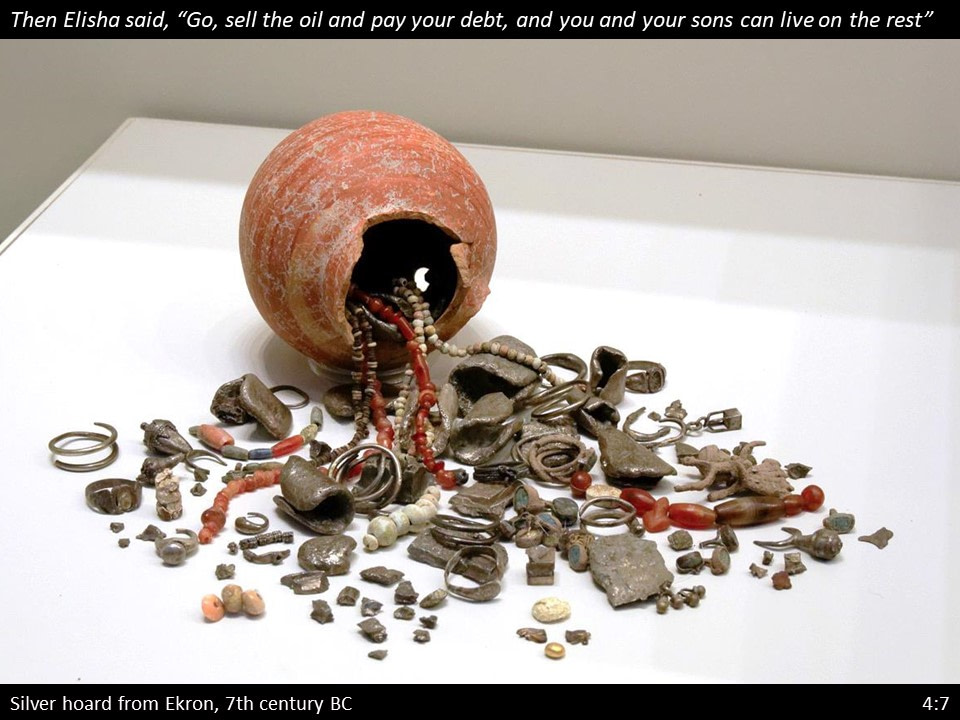


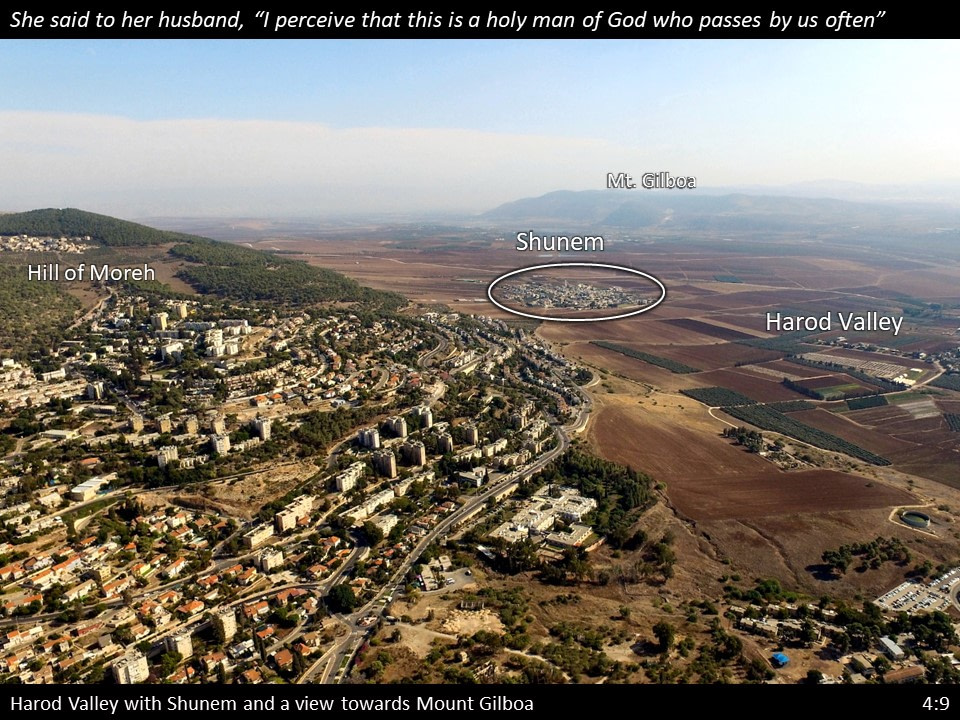
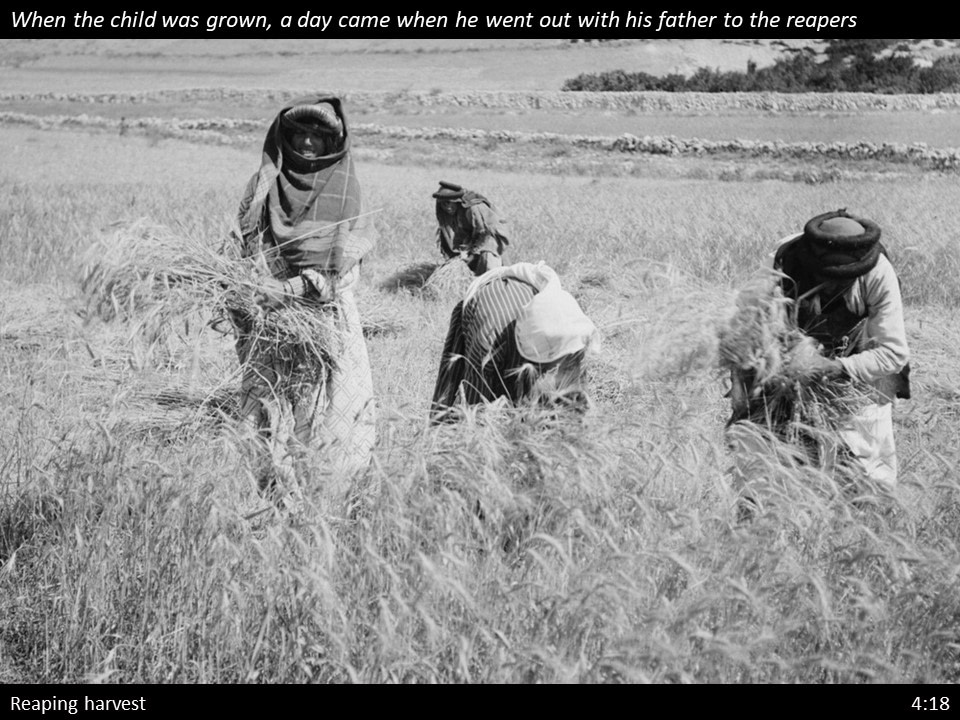
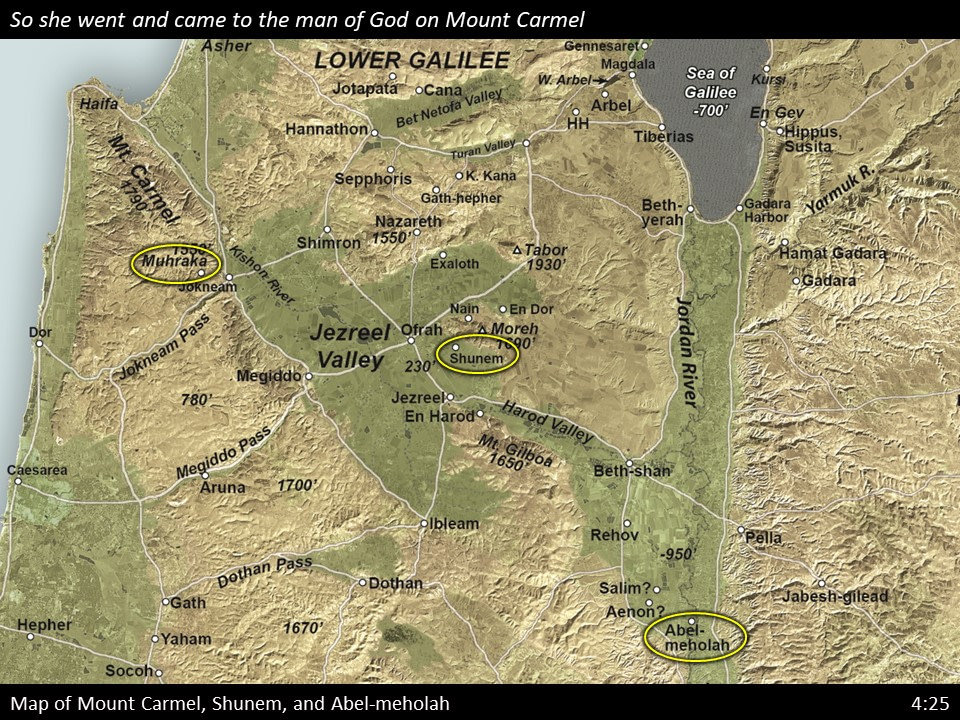




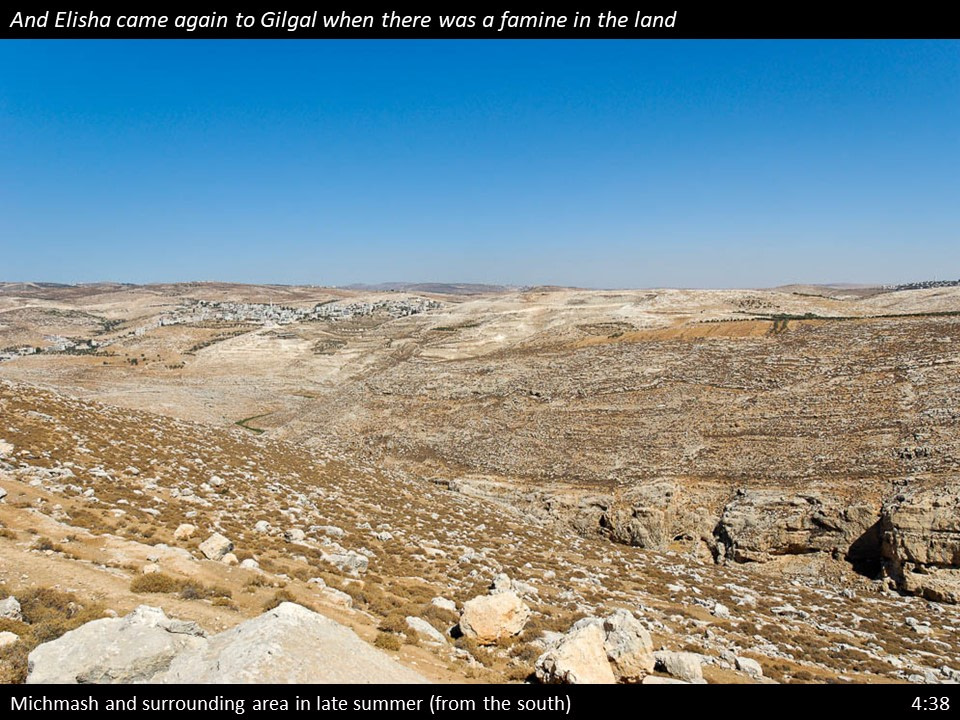
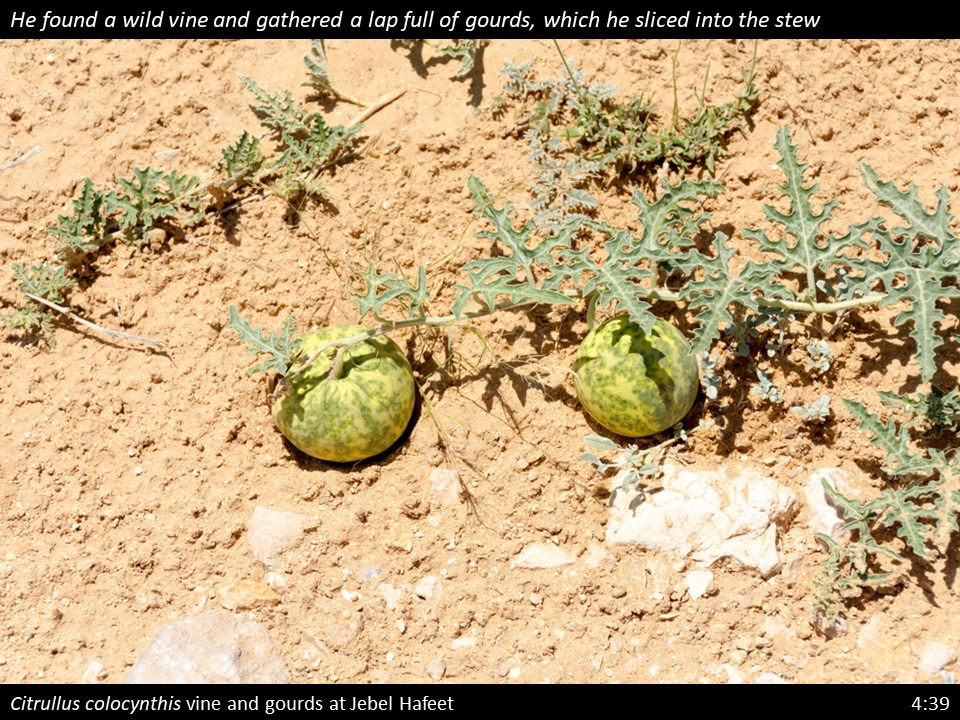


2 Kings 4 recounts four of Elisha’s miracles. There is the miracle of the widow’s oil, the woman who bore a son who died and was brought back to life, the purification of the deadly stew, and the multiplied loaves of bread.
In verses 1-7, in the widow’s story, God provided for the family because the husband had died.
- The woman’s two children were about to be sold into slavery for the payment of the debt, and she turned to Elisha for help.
- Elisha told her to go and borrow as many pots and containers as she could from her neighbors.
- The woman started pouring what oil she had into the containers and kept filling them until she had filled every container she had.
- Elisha told her to go and sell the oil to pay her debts and to live on the rest.
Note: This demonstrates how far the people had fallen away from God’s law. Their tribe or clan should have stepped in to help the widow, but they did not.
In verses 8-37, in the story of the Shunammite woman whose son died, God restored the family by bringing the boy back to life.
- A Shunammite woman provided an upper room for Elisha to stay whenever he was visiting the city of Shunem.
- During one particular visit, Elisha asked the woman what he could do for her to repay her hospitality. She said only that her husband was old and she had no children. Elisha promised that she would have a child by the next year.
- As promised the woman became pregnant and had a son.
- One year, as the child had grown, he suddenly died. The woman went to see Elisha at Mount Carmel.
- The woman met Elisha in great anguish. Elisha gave his servant, Gehazi, his staff and told him to hurry to the boy and lay it on his face. Gehazi did as instructed, but the boy did not respond.
- When Elisha arrived, he found the boy dead, so he prayed to the Lord to restore him to life. The Lord restored the boy and Elisha gave him back to his mother.
In verses 38-41, in the story of the deadly stew, a group of starving prophets was saved from poisoning by a deadly stew.
- When Elisha returned from Gilgal, there was famine in the land.
- A man went out into the field and gathered gourds to make stew unaware that the gourds were poisonous.
- God purified the stew through Elisha.
- The quantity of stew met the needs of the men, and they had food left over.
In verses 42-44, in the story of the multiplied bread, the Lord multiplied bread to feed 100 men.
- A man brought a gift of 20 loaves of bread and Elisha told the man to give it to the prophet to eat.
- The man protested that it would not be enough, but Elisha told him to distribute the bread and that he would have bread leftover.
- So the man distributed the bread and as promised all the men were fed and there were leftovers.
2 Kings 5
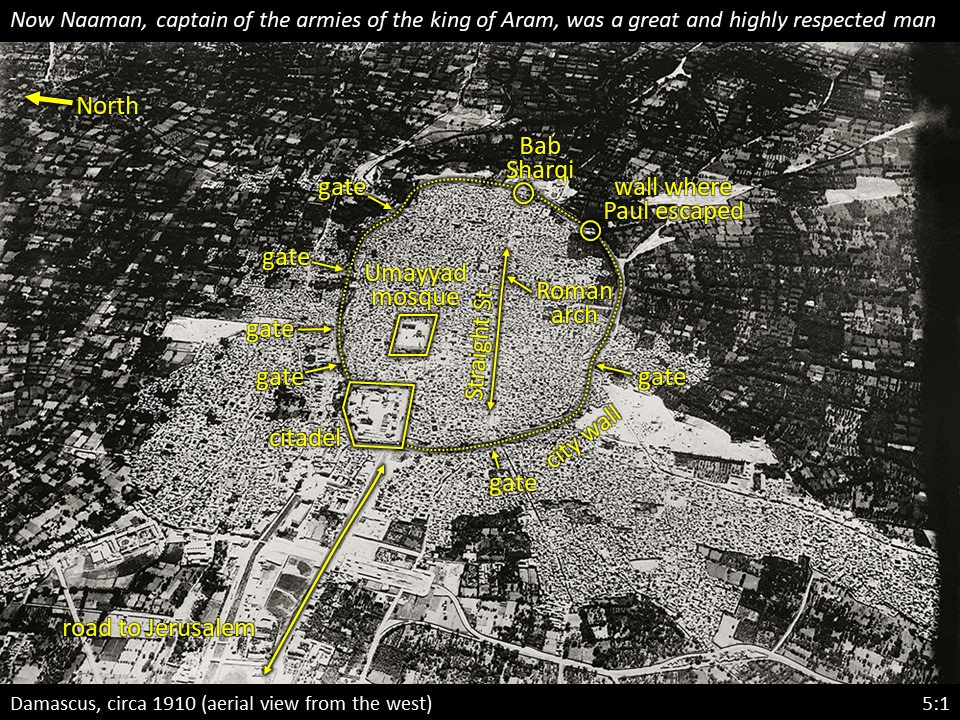
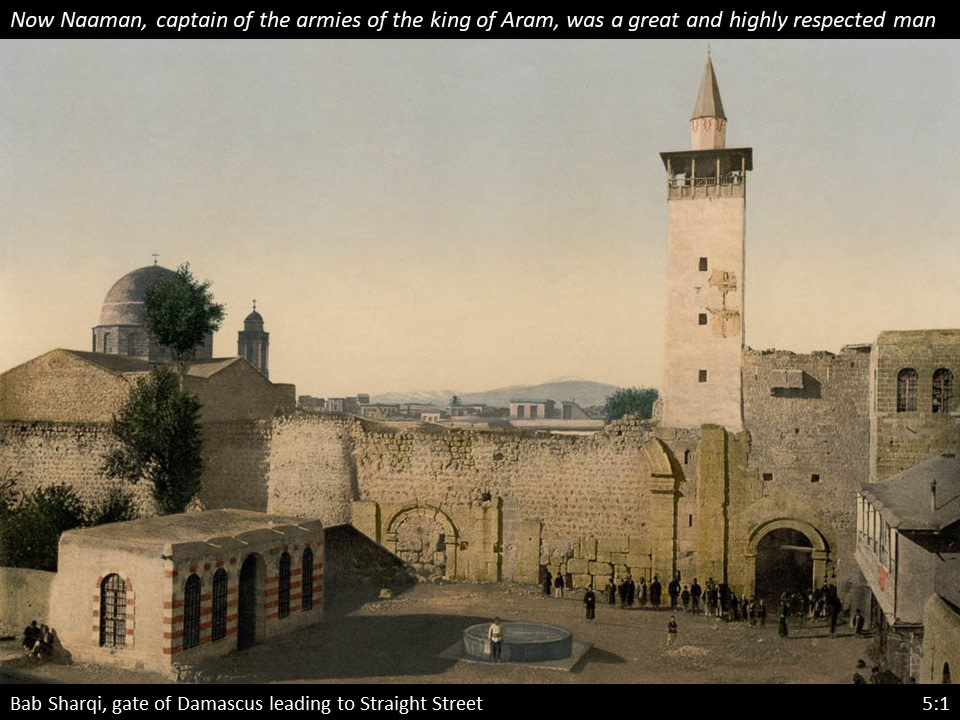
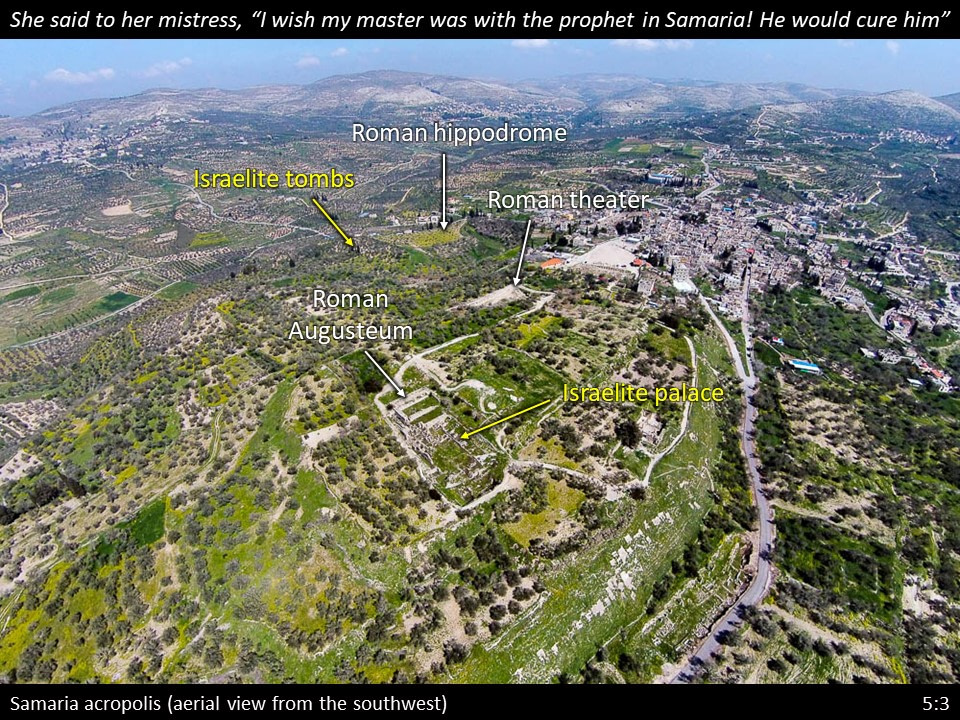
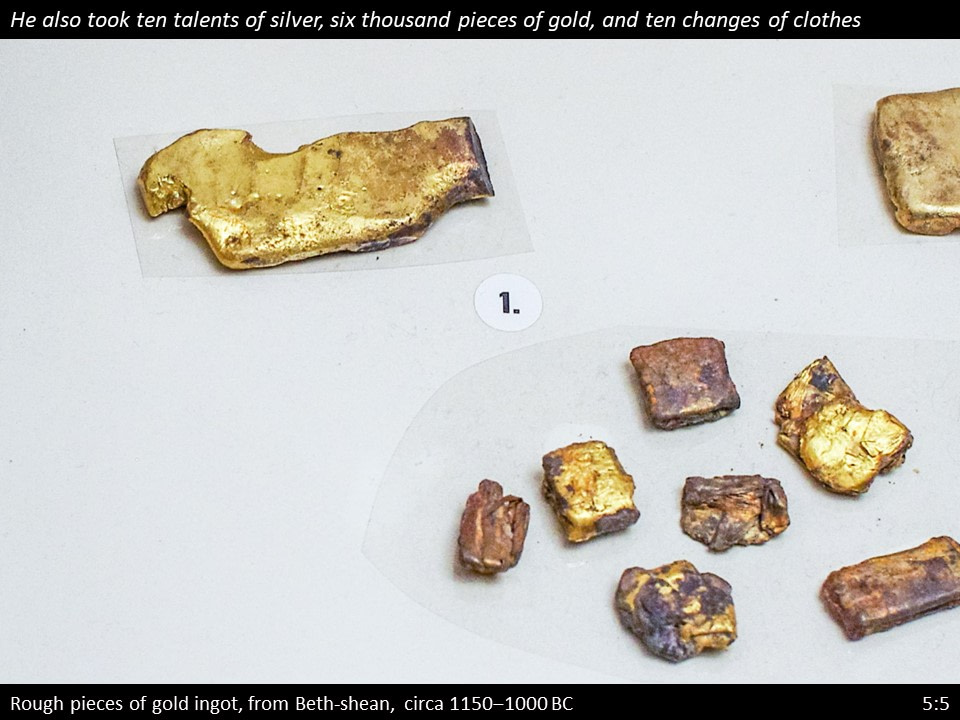
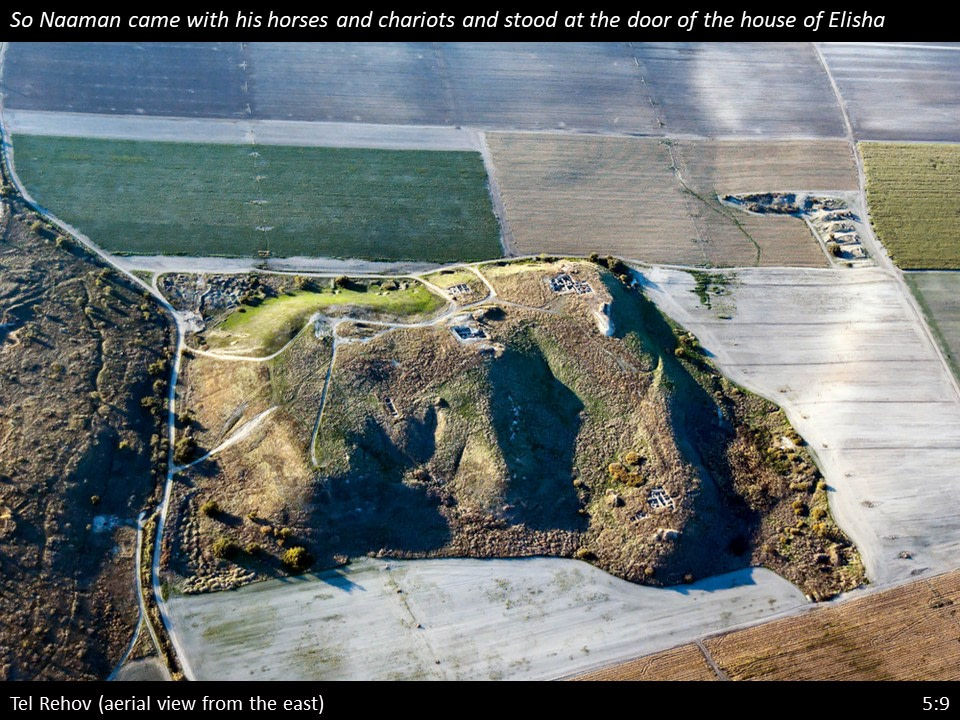
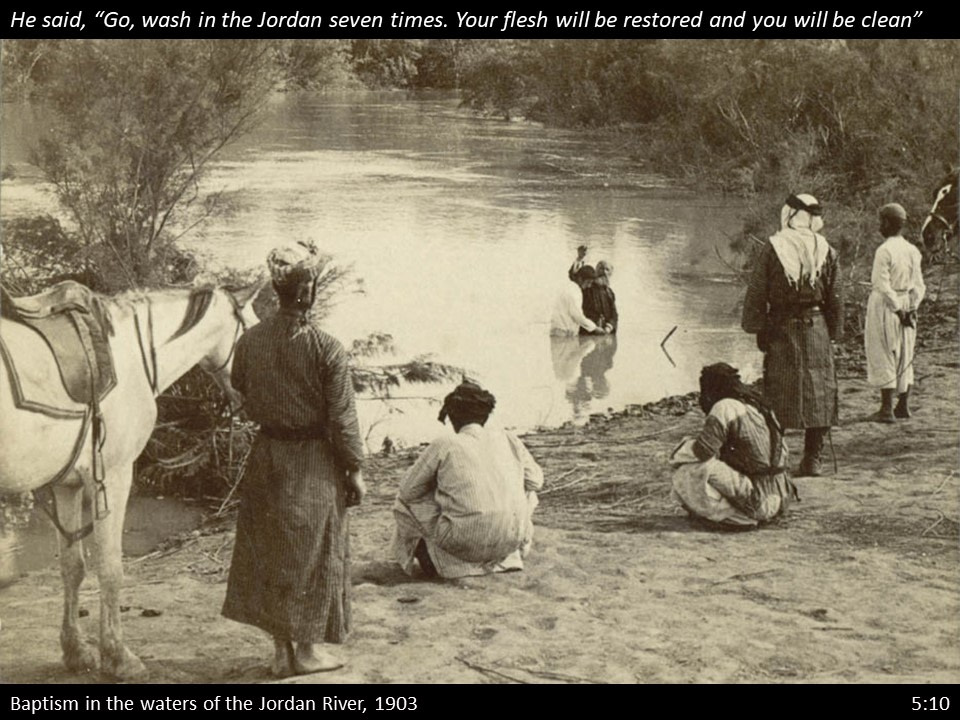


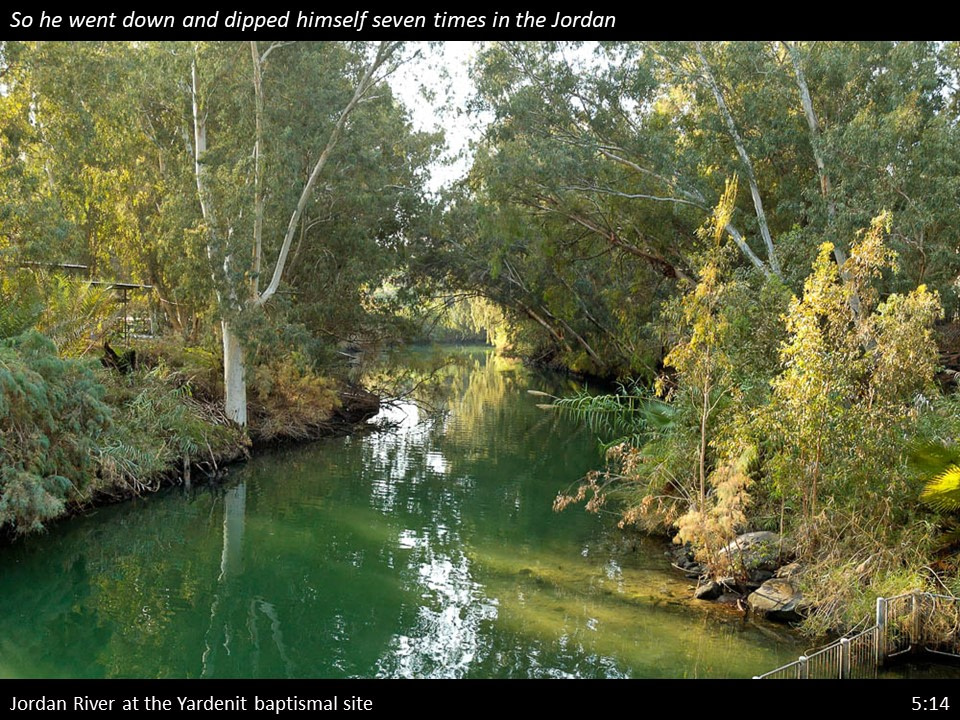
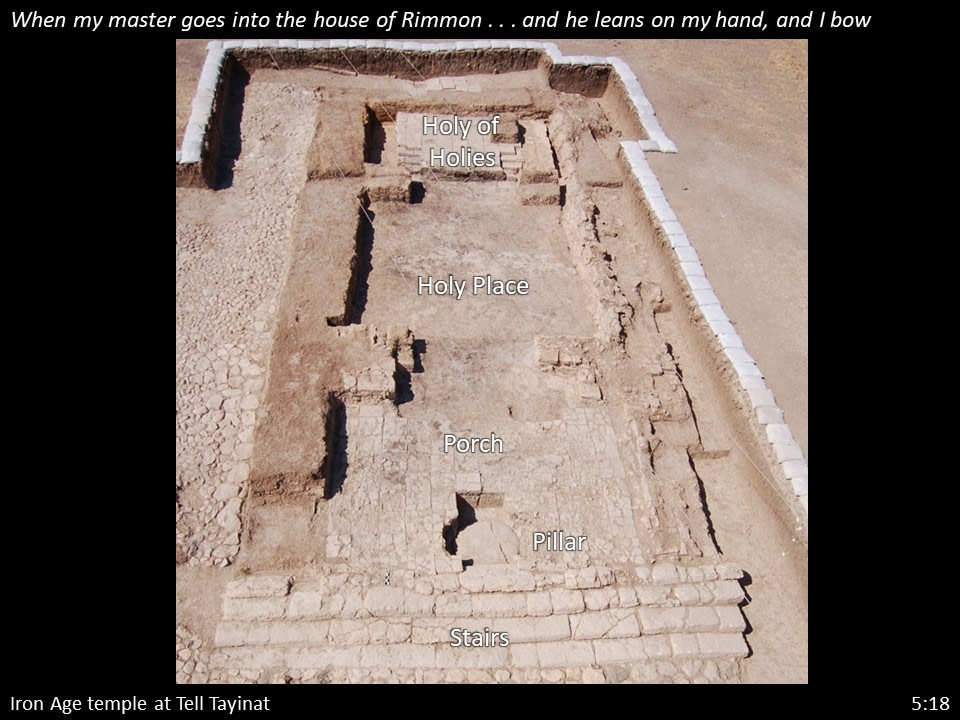
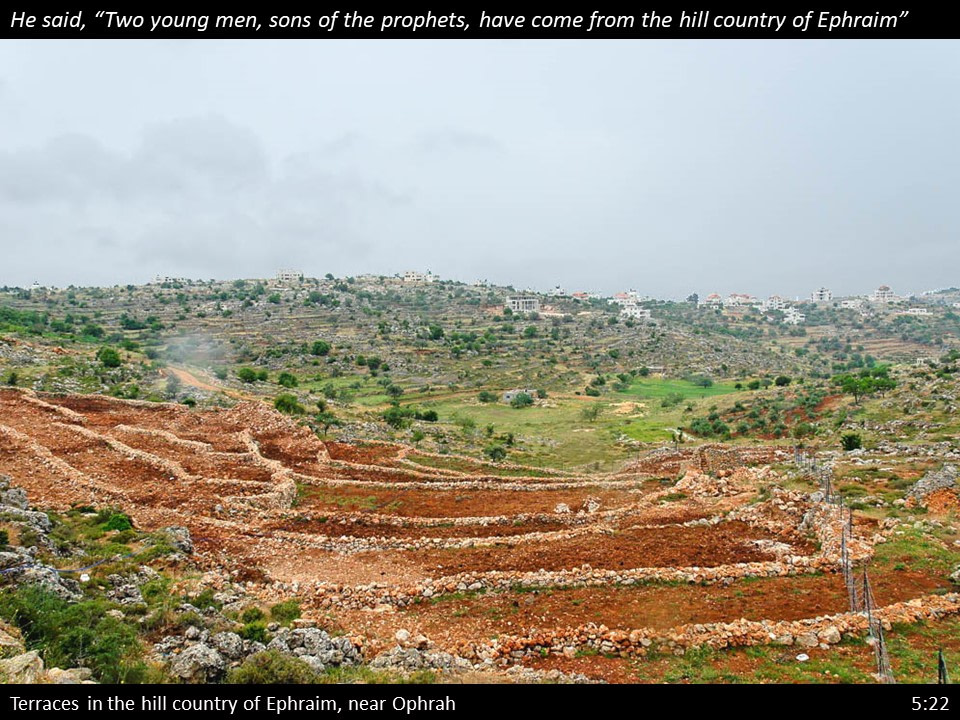
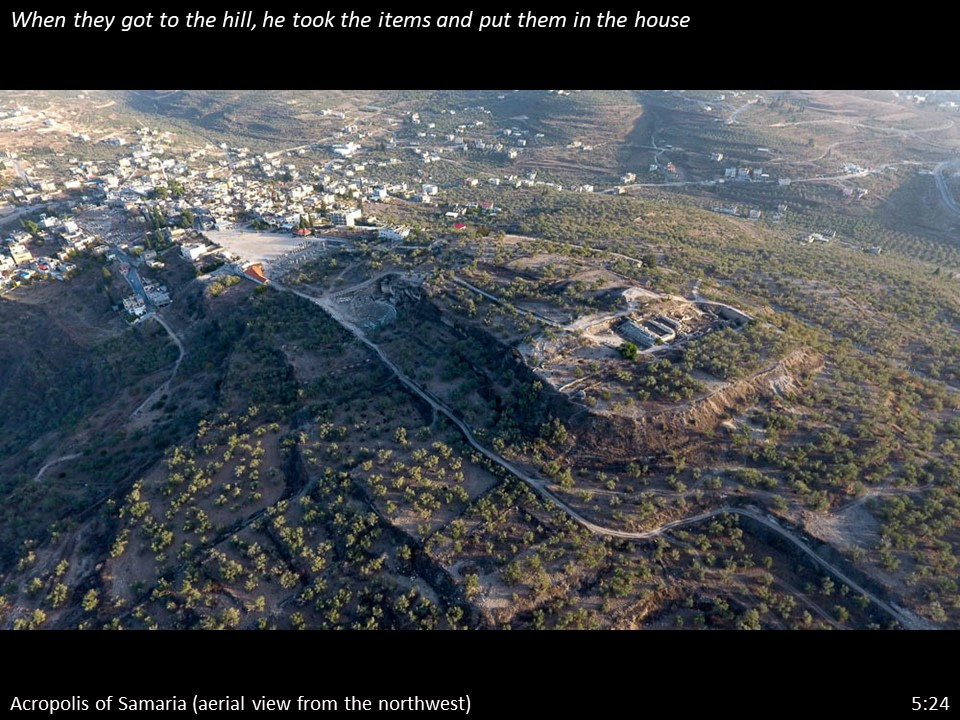
2 Kings 5 recounts the healing of Naaman’s leprosy and the greed of Elisha’s assistant Gehazi.
In verses 1-19, Naaman was the commander of the Syrian (Aramean) army. The king of Aram (Syria) sought treatment for him by sending him to the king of Israel.
Note: The king of Aram at this time was Ben-hadad II (he reigned 19 years from 860-841 B.C.)
- Joram was upset when he read the letter from Beh-hadad thinking he was trying to pick a fight.
- When Elisha heard of the man, he had Naaman brought to him and told him to dip himself in the Jordan river seven times (the Jordan River was about 25 miles away).
- Reluctant at first, Naaman’s servants convinced him to follow Elisha’s instructions, and when he did, he was healed.
- Naaman tried to pay Elisha for being healed, but Elisha refused (healing from God is by grace, it is not for sale).
- Naaman returned to Elisha completely healed, restored, and joyful proclaiming his belief in God (Yahweh).
Note: It is interesting that God chose to heal an Aramean, a pagan, of leprosy. Perhaps it was an indication of the extent of the apostasy that existed in Israel.
In verses 19b-27, Gehazi, Elisha’s servant chased after Naaman and lied to him saying that Elisha had changed his mind about being paid.
- Naaman made the payment of 75 pounds of silver and two changes of clothes.
- When Gehazi returned, Elisha wanted to know where he had been.
- Gehazi lied to Elisha, but Elisha knew and called him on the lie.
- Elisha cursed Gehazi with leprosy for trying to enrich himself, for lying, and for misrepresenting God.
Some thoughts for further consideration:
- These miracles demonstrate God’s power and willingness to help all kinds of people from all kinds of situations.
- What is also eminently clear is that we cannot represent ourselves as doing God’s work while lying and deceiving as though we will not be found out. God knows the conditions of our hearts and He sees everything.
What did you notice in your study today? Feel free to visit the website and leave a question or a comment.

